Tag Archives: how big data works

What is Data Analytics for Managers & Hotel Owners?
Data Analytics is the process of looking at different aspects of a given dataset to find trends and solutions. In the past, it was a hefty task that required lots of work and dedication. Now, it has become much easier due to technology.
The hospitality sector is adopting data analytics as technology advances and more industries follow the trend. Since the COVID-19 pandemic has imposed many limits on travel and tourism, the hospitality sector, a key driver of the global economy’s growth has suffered greatly.
It has forced hotel owners to become more creative & tech-savvy to gain customers. They need to use AI, data analytics, etc. to boost performance and create a unique marketing strategy and occupancy rates to stay ahead of the curve.
What is the purpose of data analysis? Data Analytics for managers can help in studying demand and customer behavior to boost overall profits. Firms must assess the value of data analytics and how it can maximize revenue as the world starts to return to what it was before.

RevPAR forecast of hotels in India until 2024.
India was hit by the COVID-19 pandemic in 2020, leading to travel bans and nationwide lockdowns in March of that year. As a result, RevPAR fell to 1,675 INR per day in 2020. Compared to 2019, there was a drop of about 60%.
The Indian hospitality sector noticed a recovery of 4000 INR per day RevPAR in hotels across India after the initial pandemic wave. However, because of the limits imposed by the second wave of the Pandemic, RevPAR was once more down by 53.9%. As a result, the years 2019 through 2021 are regarded as the worst ever for the tourism sector.
What are the Benefits of Data Analytics for Managers in the Hospitality Industry?
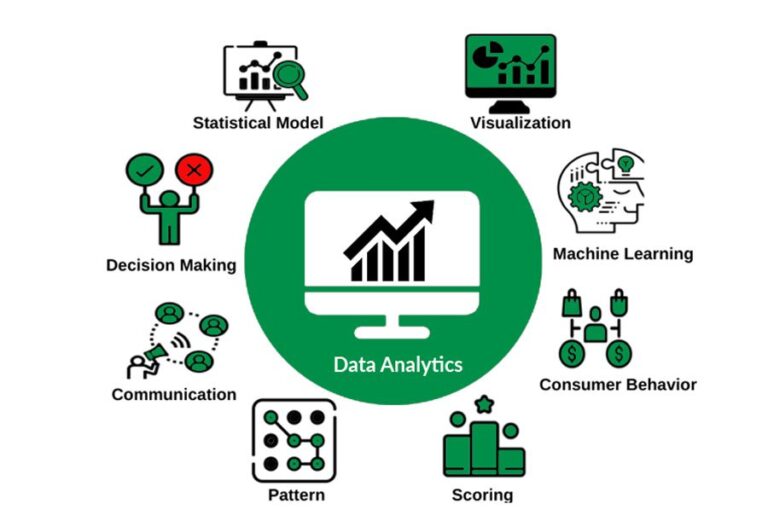
How data analytics helps the hospitality industry and tourism.
You wouldn’t think that data analytics would be the backbone of marketing, customer loyalty, and productivity in the hotel industry, but its value on all those fronts is becoming increasingly clear.
It allows hotels to personalize their guest experiences, interact with them more efficiently and offer better prices for everyone. Here are five ways in which data analytics for managers and hotel owners can help. The data analysis benefits include:
1. Revenue Management Service
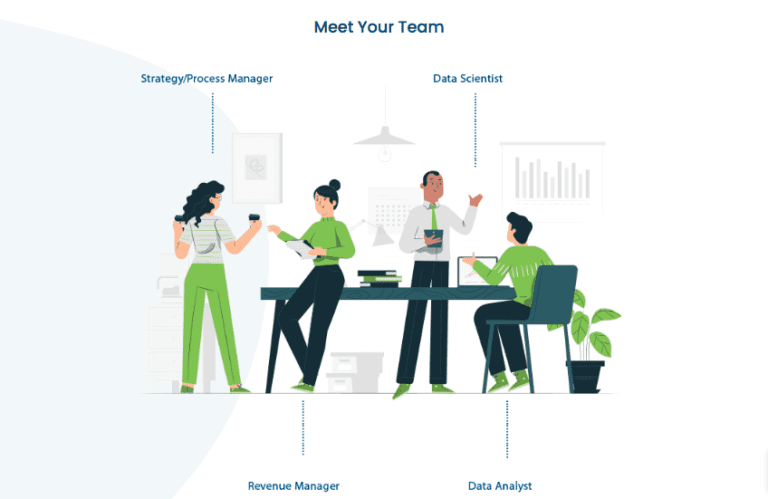
Hotel owners are more reliant on data analytics to create strategies for their revenue. They can now leverage the internet to find data that they could use and track customer interests. Experts are searching for new ways to get their services in front of the right people at the best price. The research uses various parameters to measure market competition.
Data is used to improve revenue management because it can help to measure current reservations, past occupancy levels, and other KPIs. All of that data helps us make informed decisions on how to increase the occupancy rate. Looking for the best revenue management software and service? Click below.
Want Expert Revenue Management Services
2. Overall Guest Experience
Depending on the type of analytics you use, you can find a lot of data about your customers. You can find customer feedback using social media, reviews made on hotel websites and magazines, or any other online platform.
You could also use a traditional guest survey for reviews, which will give you more detailed insights into the factors that influence your guest’s booking decisions – things like room quality or staff. This will allow hotel owners and managers to know about their trips and improve future experiences.
Data analytics for managers is key here and by analyzing it, you can come up with new ideas and perspectives that could sell. Ever wondered how big data works? Big data analytics gives hotel owners, the power to create new business opportunities. Hotel owners can also add value to their services, giving guests a better experience.
3. Effective Marketing
Proper data analysis can allow the hotel industry to build a tailored marketing strategy plan that is targeted to specific customer types and maximize revenue. This enables advertisers to build a more personalized user experience. They can identify key consumer groups and develop more content to serve their needs.
If someone has booked the property for themselves & the whole family, we can use data analytics to find out what they might be interested in so that we can offer tailored services to them.
4. Competitor Analysis
To stay competitive in the hotel industry, it is crucial to look out for your competition. Data analytics for managers is a great way to gauge how your hotel compares with others in terms of hotel dynamic pricing and can give you an edge over other hotels in the area.
5. Better Services
Hotels collect large amounts of data through different means. When they analyze the data, they can see who the guests are and what products & services they want. They can also use this to bring in new things that guests would want. For example, if guests often request gym equipment that the hotel doesn’t have, this can assist them in revamping their gym.
Data analytics for managers can help make strategic decisions about partnerships. For example, cab services, pubs, restaurants, and more. Data analytics should be used in the hotel industry to improve productivity, efficiency, and profits. The information from data analysis can tell you where adjustments need to be made and which activities can make a difference.
If that person has come for a business trip, we can show them business-related activities.
How to Choose the Best Platform for Data Analytics for Managers & Hotel Owners?
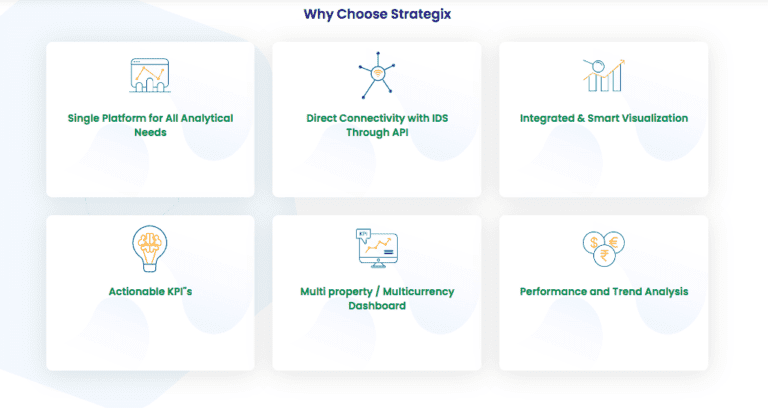
Strategix – A Cloud-based Data Analytics and Business Intelligence Solution
Data analytics platforms are a set of tools and services that help firms at every stage of collecting, storing, cleaning, organizing, and modeling raw data. Modern platforms use Artificial Intelligence, Machine Learning, and Business Intelligence Services to push the limits of data analytics. A good platform will also contain data visualization capabilities.
But how can you decide which of the many data analytics tools that are now on the market is best for you?
It is difficult to choose the best platform for your business because the main obstacles to increased data-driven efficiency often have less to do with the tech itself than with how firms use it. So, in order to choose a data analytics platform that is a great fit for your firm, here are a few tips.
1. Set your Goals
The first and most crucial step is this one. Spending money on brand-new, flashy data analytics tech is pointless if you don’t know what you’ll use it for. What issues do you need to resolve or opportunities are you trying to find, ask yourself and other key stakeholders.
It will be easy to create a toolbox that will assist you in meeting the goals of your data-driven company strategy if you are clear about them. You must have a clear idea of where you need to be if the correct data analytics platform is the one that gets you there.
2. Know your Business
Knowing where your firm is at the moment before selecting a data analytics platform is the second crucial step. Keep in mind your financial resources, the software and tools you already use, and the skills of your IT team. You should also think about the kind of data your firm uses and how it fits into larger operations. To assist you in choosing the right analytics solution for your firm, examine the following questions:
- Data come from a single source or multiple sources?
- What storage do you have, and what are your plans for data scalability over time?
- How is your data handled, and who works with you on this? Are they onsite or working remotely?
- What IT, data analytics and data science skills does your team have, and where are you lacking?
- What data security and privacy do your firm require?
3. Think about Usage
You must take into account who in the firm will use the platform and for what purposes when choosing one. Do they have the required skills to run complex models and derive insight? Or does a simple platform that allows non-technical stakeholders to perform basic analysis better fit your needs?
Either way, the platform should include data visualization tools to present the insights to all stakeholders in a powerful way. The choice between a standalone data analytics platform and an integrated solution that allows customers to access analytics through apps is another thing to take into account.
4. Services that match your needs
When you are certain that you are aware of your firm’s needs and capabilities, it is time to review the data analytics platform provider’s offerings and choose which ones best suit your needs.
Speed, user interface (UI), data modeling and visualization, remote and mobile working possibilities, data analytics dashboard/reporting UX, security standards, etc. are a few aspects you can compare. Do look at the support options that providers give their clients as well.
5. Compare with other platforms
Find out what data analytics for managers other firms are using to resolve issues, improve performance, and create new business opportunities by doing some research. This strategy will not only assist you in defining your demands, but it will also offer you helpful examples of the best analytics providers and platforms.
6. Be aware of Scalability & Pricing
Any solution must be crafted with scalability in mind so that, as the firm expands, bigger data sets can be processed and fresh data sources can be added to analytics. Switching analytics systems in the future may be difficult and costly. When choosing a solution, keep your long-term plan and goals in mind.
It’s critical to be fully aware of all charges involved with a solution because different data analytics platforms employ various price systems. This entails reviewing pricing for subscriptions, licensing, user limits, hidden fees, etc. as well as planning for how these expenses can vary as your firm grows.
Why BI Tools are Important for the Hotel Industry
Success Stories: Data Analytics for Managers & Hotels
1. Paradigm Hotel Group

Privately held Paradigm Hotel Group is a San Francisco-based hotel and commercial real estate company, founded in 1996. Their portfolio includes renowned brands like Virgin Hotels, Hilton, IHG, and Hyatt all around California, USA.
The lack of uniform reporting and a hotel revenue management process was Paradigm’s two main problems. Revnomix helped them with automation so that data is transformed into business intelligence. This data was ultimately available for Management, Asset & Revenue management concept teams in the right context and at the right time.
Read Paradigm Case Study by Revnomix
2. Intercontinental Hotel Group (IHG)
IHG is a hospitality company that operates 6028 hotels with 882,897 rooms across 16 brands. The hotel chain has many more hotels in the pipeline and wants to increase its global presence. It improves its tech capabilities to handle constantly growing data.
IHG Concerto, a cloud-based guest reservations system is used by more than 1000 hotels globally. To boost sales and acquire more data for making decisions, the company co-developed the system with Amadeus. By providing personalized offers based on prior bookings and suggesting a more extensive set of booking options like open dates, budget, etc., Concerto enables hotel owners to increase direct bookings. The software offers real-time access to its IHG Rewards Club loyalty program data and supports many languages.
3. Radisson Hotel Group
With 7 unique hotel brands and more than 1,400 hotels already open or in the planning stages around the world, the Radisson Hotel Group is one of the biggest and most dynamic hotel companies globally.
Data-driven decision-making is also used by the Radisson Hotel Group to support its marketing, communication, and brand strategies. In order to match client expectations, the hotel chain monitors market trends and analyzes consumer behavior.
“We believe data is key,” states Radisson Hotel Group vice president of digital Remy Merckx. “We have recently partnered with Accenture Interactive to support us in building an advanced intelligence model to start predicting buying behaviors and patterns, better understanding our customer’s online journeys and the way they prefer to choose, book and stay with us; and connecting it to the demand and business generated for our hotels worldwide.
These predictive models help us in getting most of our investments and initiatives, and also help us engage on a more personal level with our guests.”
Types of Reports for Data Analytics for Managers & Hotel Owners
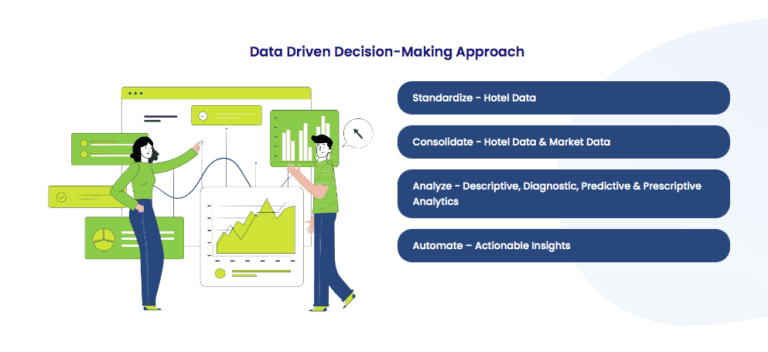
Today, data analytics for managers and hotel owners is used to make better business decisions. It can also help you understand your customers and measure the success of your marketing campaigns. Here’s a list of the 4 most important hotel data analysis reports you need to know about.
1. Target Audience Reports
For better service and more successful marketing, it’s crucial to identify and understand your guests properly. They are more likely to share positive feedback if you take care of their needs and preferences.
One of the best ways to reach your target audience is by knowing their age, family background, and income. These attributes might also include hobbies and previous purchases. The hotel industry can leverage it to provide personalized services to its current customers and attract new ones.
2. Transaction Reports
By tracking your hotel’s daily transactions, you could easily determine what days are the most and least profitable. This way, you can better schedule staff for these days and use this data to make beneficial changes to your business.
When creating a transaction report for your hotel, it’s important that you track the most important transactions that can potentially affect your business decisions.
Here are some of them-
- Total number of check-in
- Total number of check-out
- Total number of unpaid check-out
- Average occupied rooms
- Average unoccupied rooms
- Payment method
3. Sales Forecast Reports
Firms use predictive analytics to forecast their sales. These are based on customer data, as well as reporting that is done in the company. This data can be useful in any marketing strategy that an organization has. Forecasting helps firms to maintain their operations by estimating future demand for their products or services.
Analytics can help you forecast consumer behavior and improve inventory to ensure that the right products are available at the right time. Operating a successful hotel requires more than just money, it takes careful planning and readiness for your end product.
4. Statistic Reports
Different indicators give a clear indication of how well the business is performing. For instance, the revenue per room or the number of rooms occupied. Here are the important factors that you need to consider for analysis:
- The total number of closed, occupied, and vacant rooms
- Canceled reservations
- The average occupancy
- Length of stay
- Lead time
- Revenue per booking
- Daily pricing
Future Trends of Data Analytics for Managers & Hotel Owners
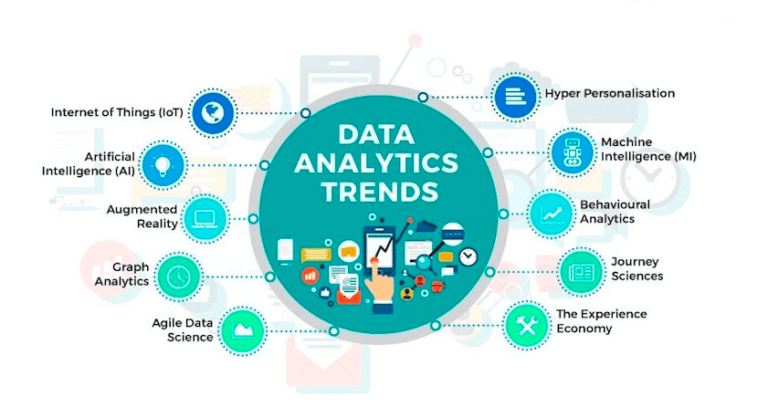
Data Analytics uses new emerging technologies.
The hospitality industry includes key players like Intercontinental and Radisson Hotel Group that are using data analytics more and more to cut costs, enhance customer experience, streamline operations, and achieve marketing goals. The big data framework is gaining interest from many firms due to its ability to improve data security
How is data analytics changing with advances in AI, ML, and IoT? Which Data Analytics Trends are Most Exciting for 2022? Read to find out more.
1. A Major Shift to the Cloud
Hotels that use analytics tools are shifting to the cloud for better performance. Many have already moved to cloud systems. They can more effectively contribute to business agility and innovation by adopting cloud apps.
2. Automation
When a business works with large data, automation of data analysis is really helpful. Automated data analytics for managers and hotel owners can explore, prepare, replicate, and maintain data effectively.
3. DataOps
The term “DataOps” refers to the process of storing, analyzing, and extracting value from large amounts of data. In the data storage and analytics fields, it aims to break through the silos that have kept various teams apart.
4. Real-Time Data Visualization
Hotels perform at lightning speed and create huge amounts of data. As a result, managing these huge amounts of data is crucial for gaining insights. Real-time visualization can help by managing everyday tasks, allowing firms to access, analyze, visualize, and study real-time data to take control of all operations.
5. Data-as-a-Service (DaaS)
As more hotels turn to the cloud to upgrade their structure and workloads, data-as-a-service (DaaS) will become a solution for data integration, management, storage, and analytics.
In 2022 and beyond, there will be an increase in new data analytics requirements and trends. Pay attention to these current trends to secure your hotel’s success and avoid being caught off guard by new tech.
How Analytics & Automation Simplify Your Revenue Management Strategies
How Can Revnomix Help with Data Analytics for Managers & Hotel Owners
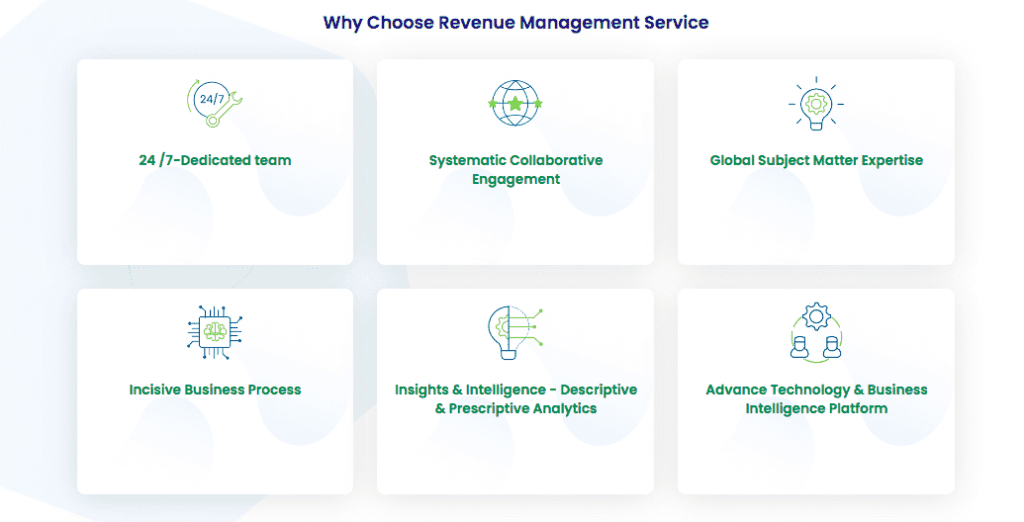
Data analytics for managers and hotel owners can be used to track their growth, identify new areas to improve and make better decisions. It can be used to make your hotel more sustainable and reduce costs simultaneously. Leading hotels now use data analytics to make the guest experience more personalized. They can adjust changing room rates, diversify their portfolio, or improve product quality based on insights.
Hotels can leverage data to know their customers and identify new ways to make more money. Data Analytics for managers and hotel owners by Revnomix provides simple solutions to collect data, make decisions and grow their business.
Looking for the best hotel revenue management company? We’re your one-stop shop for Data Analytics and a Revenue Management System. Our highly trained experts use the latest tech, and 24/7 customer support to make it seamless for you. To find out more about our solutions and how we can work together, connect with us now!